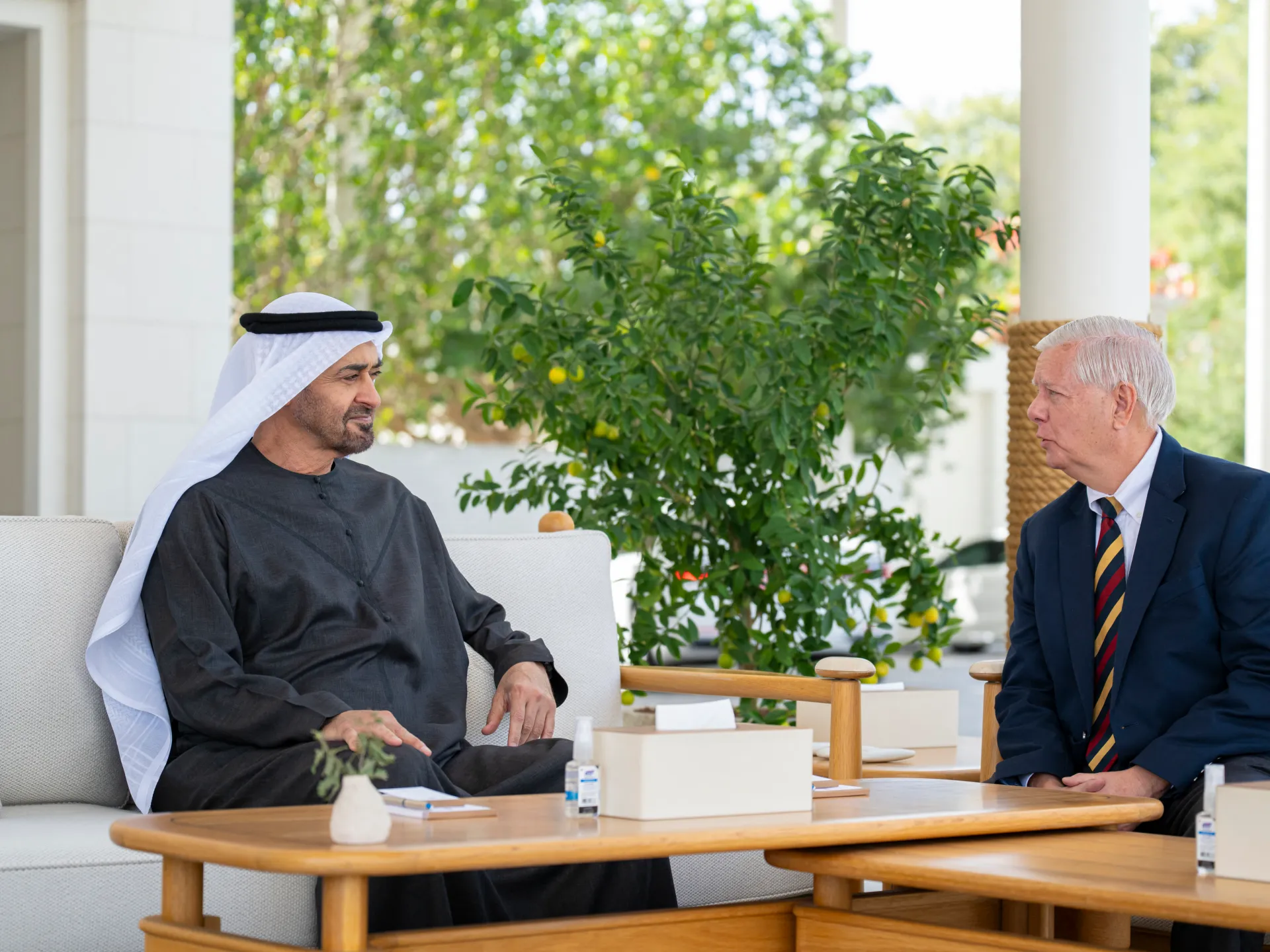After health rumours, UAE President MBZ seen meeting with US lawmaker | News
US Senator Graham claims the UAE royal is ‘as sharp as I’ve ever seen him’ in Abu Dhabi encounter.
Published On 18 Feb 2026
Emirati President Mohamed bin Zayed Al Nahyan has made his first appearance since rumours about his health spread online.
The Presidential Court on Wednesday shared video footage of the Emirati president, also known as MBZ, smiling alongside Republican US Senator Lindsey Graham during a meeting in Abu Dhabi.
Recommended Stories
list of 3 itemsend of list
WAM, the UAE’s official news agency, also shared photographs of the encounter at Qasr Al Shati, in which MBZ appeared alongside Graham.
In a social media post, the US senator rebuffed in no uncertain terms any claims that the UAE president may be unwell.
“To those who are perpetuating false narratives against the United Arab Emirates and President Sheikh [Mohamed bin Zayed] personally, you are full of it,” Graham said on X.
“Not only is he alive, but he is also well and as sharp as I’ve ever seen him.”
Graham, a top Republican in Congress, hailed MBZ for embracing the so-called Abraham Accords, a series of US-brokered deals to normalise relations between Israel and Arab states.
The UAE was among the countries to sign on to the initiative, which was unveiled in 2020 during US President Donald Trump’s first term in office.
Palestinian leaders condemned the Abraham Accords as a betrayal of their cause and the Palestinian push for self-determination.
